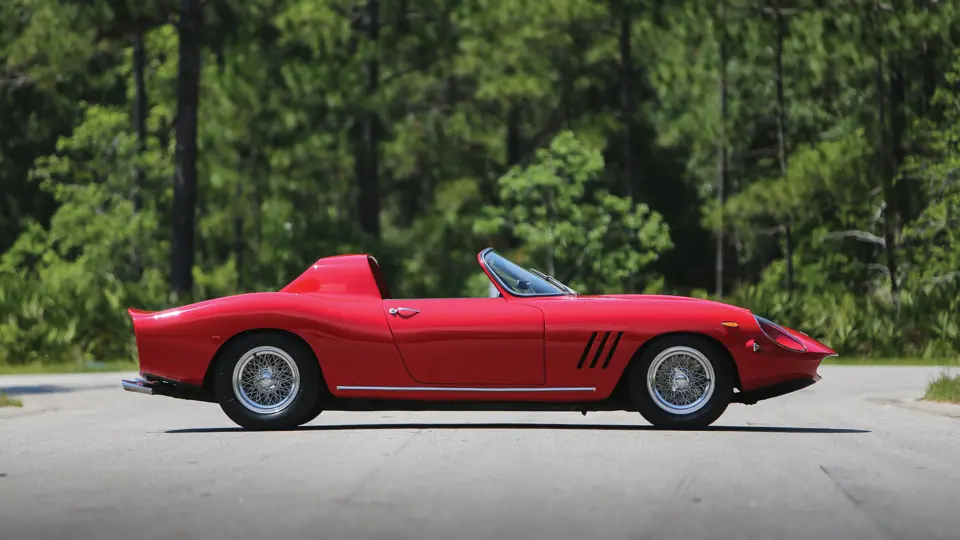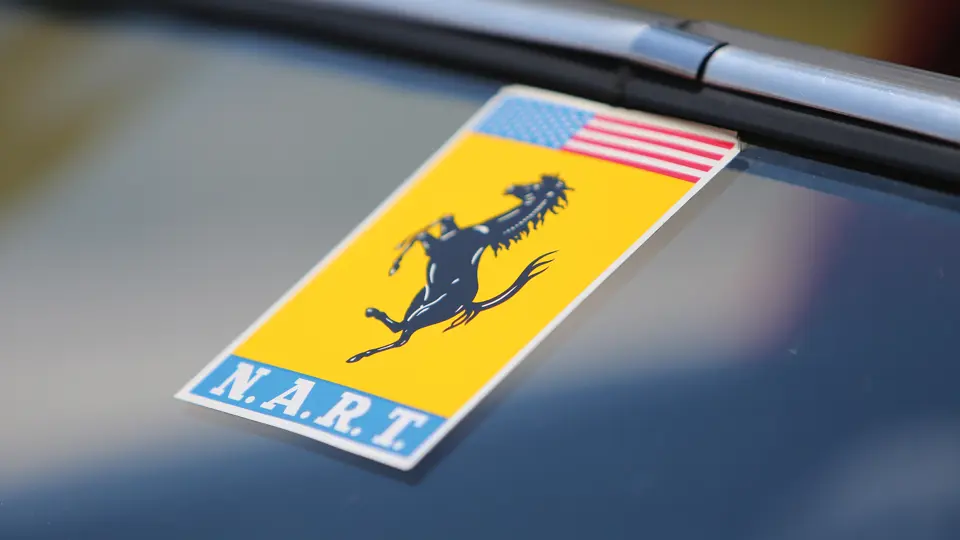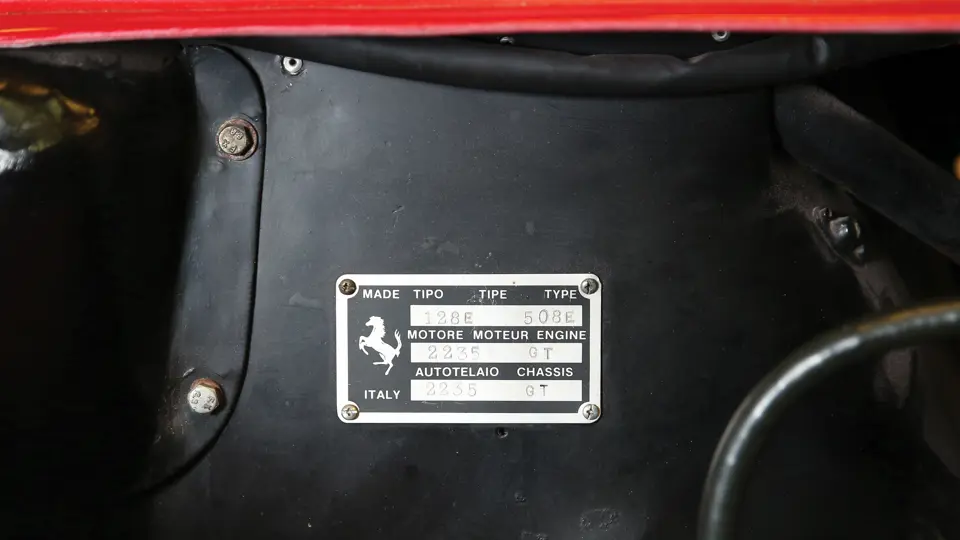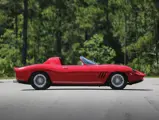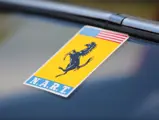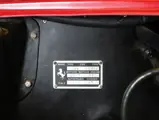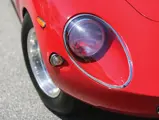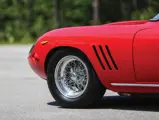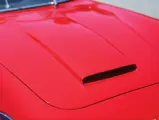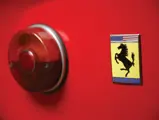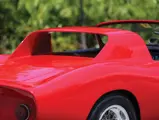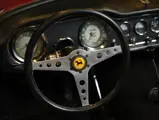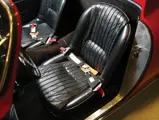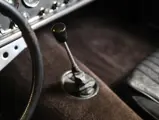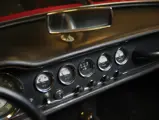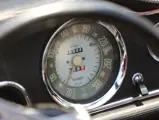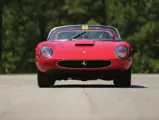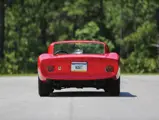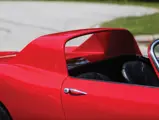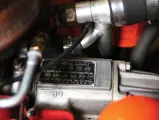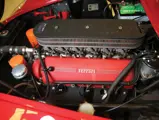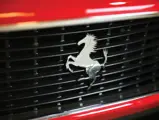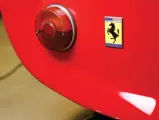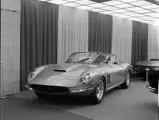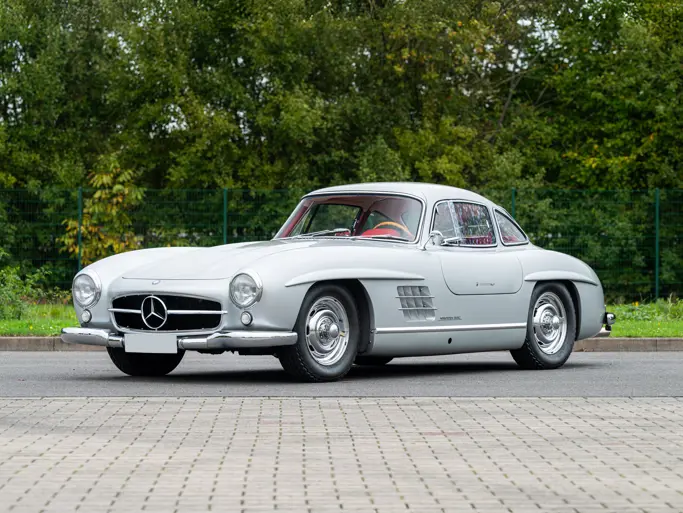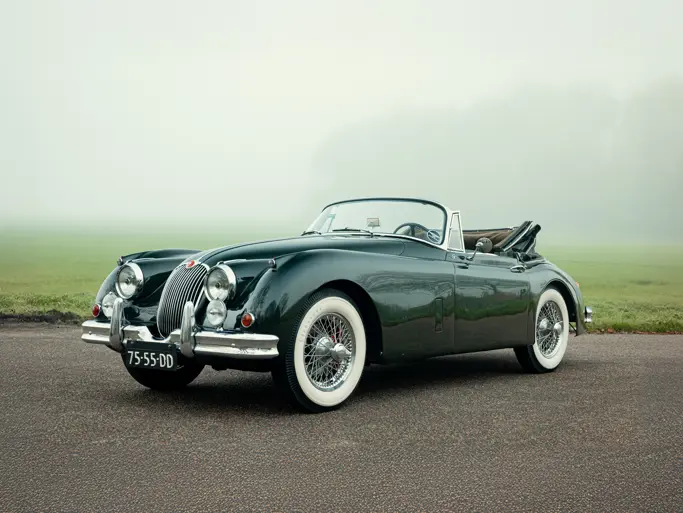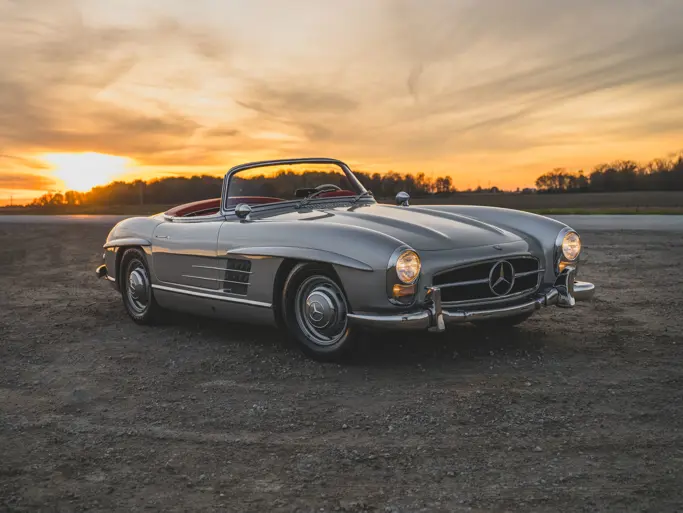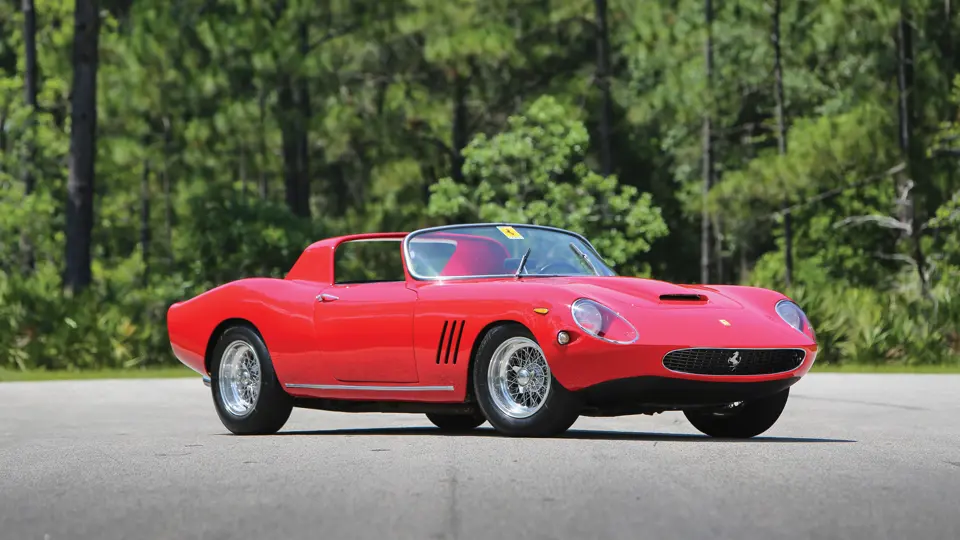
1961 Ferrari 250 GT N.A.R.T. Spider by Fantuzzi
{{lr.item.text}}
$1,017,500 USD | Sold
{{bidding.lot.reserveStatusFormatted}}
- Rebodied by Fantuzzi in 1965 for Luigi Chinetti
- Shown at the San Francisco, Miami, and New York auto shows in 1965 and 1966
- A little-known progenitor of the N.A.R.T. Spider lineage
- Owned by the consignor for 35 years
- Well-documented and featured in Prancing Horse issue number 123
- Class winner at the 2014 Cavallino Classic
300 bhp, 2,953 cc SOHC V-12 engine with six Weber 38 DCN carburetors, five-speed manual gearbox, independent front suspension with unequal length A-arms and coil springs, live rear axle with semi-elliptic leaf springs and parallel trailing arms, and four-wheel hydraulic disc brakes. Wheelbase: 102.3 in.
THE CHINETTIS AND THEIR FERRARIS
Although Luigi Chinetti is known for his role in introducing Ferrari to the United States as the marque’s first continental importer, as well as for his racing accomplishments during the Scuderia’s formative years, the famed entrepreneur may be best appreciated for his North American Racing Team. The esteemed N.A.R.T. badge went on to decorate several desirable Ferrari sports cars of the ’60s and ’70s, resulting in period race winners and some of today’s most desirable Ferraris.
Sometimes lost in this acclaim is the fact that Chinetti had a central role in the design of many of his most famous cars. Over the course of several decades, the importer and his son, Luigi “Coco” Chinetti Jr., gradually crafted a discernable lineage of modified one-off, or limited-edition, Ferraris based on their open-top design briefs and individual sketches. Of course, the most famous of these cars were the 275 GTB/4 N.A.R.T. Spiders, with such examples triumphantly winning at Sebring in 1967, starring in The Thomas Crown Affair, and stunning the collector-car world a year ago, in 2014, with a world-record sale.
Although the ten 275 GTB/4 Spiders are the best-known examples of Chinetti’s open-top Maranello conversions, the N.A.R.T. Spider motif can be traced to several one-off show cars of the mid-1960s, and they later extended to conversions of 330 GTC and 365 GTC/4 examples.
THE FANTUZZI SPIDER: CHASSIS 2235 GT
Chassis number 2235 GT began life anonymously enough as the 28th first-series 250 GT 2+2, an example of the long-wheelbase four-seat grand tourer that debuted in late 1960. The model, also known as the GTE, for its Tipo 508E chassis, was further esteemed for the Tipo 128E engine’s Testarossa-style outside-plug layout. This GTE, finished in green paint over a black interior, completed assembly on January 13, 1961, and was subsequently sold to Luigi Chinetti Motors.
The GTE was originally intended for sale to a customer in Buenos Aires, one Miguel Carcano, but it is unknown if it was ever delivered to him. After being damaged in a minor accident in 1964, this Grand Tourer was re-purposed by Chinetti and his son. As Coco Chinetti explained to writer Marc Sonnery in a feature article from Prancing Horse issue number123, published in 1997, “We initially ordered the car for ourselves, drove it quite a bit, and kept it for some months. It was a great car: light, beautiful.”
In 1965, Chinetti shipped the car to Italy for new coachwork in Coco’s design and to be built by Carrozzeria Fantuzzi. Bringing Chinetti’s sketch to life, the coachbuilder rounded out a small-mouthed slant nose and fitted it with covered headlamps and bumperettes, which lead to GTO-style fender gills. A new raked windscreen was installed and fitted with wind wings, and a hollow aluminum basket-handle roll-hoop was shaped in the style of Ferrari’s 250 P race car.
In a video later produced by Motorweek’s David Scrivener, Chinetti Jr. reminisced, “This wasn’t really a styling exercise…it was to make a racing-inspired car for the road. It really went from a sketch to a car just the way they used to do it. I miss those days, because you could literally take your pencil and draw it and have it built. What a luxury! [It] reflects a bygone era that is still sort of a heartthrob.”
The new N.A.R.T. Spider was finished in silver and completed in the autumn of 1965. Afterwards, it was shipped to San Francisco for the eighth annual Import Car Show at Brooks Hall in November, a period show conceived by independent San Francisco auto importers, including the well-known Kjell Qvale. Following its West Coast debut, the Fantuzzi Spider made appearances at the Miami Auto Show and the New York International Automobile Show in April 1966, where it was seen by a fascinated teenager named David Berger. He would eventually become a central figure in the car’s story.
After these auto show appearances, Chinetti delivered the one-off Spider to his regular mechanics of choice, Modena Sportscars, whose garage was across the street from his Manhattan dealership. His favored mechanics were tasked to make the 250 GT road-legal and safe to race, which resulted in the addition of driving lights and the reinforcement of the basket-handle with a functional roll bar and cushioning. Furthermore, the engine was uprated to near-Testarossa specifications, notably with the installation of six Weber carburetors and a racing camshaft, and the gearbox was converted to a five-speed unit.
After a few months of enjoyable use by Coco Chinetti, the car was sold to Michael Stone, of New York City, who is believed to have occasionally entered it in local events. In 1970, the car was acquired by Phil Tegtmeier, part owner of Kirk White Motorcars in Paoli, Pennsylvania. He soon offered the car for sale, but when his reserve of $10,000 was not met, the high bidder, David Berger, of Florida (the wide-eyed teenager from the New York Auto Show), was not deterred.
THE FANTUZZI PARTNERSHIP
In 1971, Mr. Tegtmeier sold the Spider to Ed Osborne, of Cleveland, Ohio, and it was raced once by Tegtmeier the following year, at a local track called Nelsons Ledge. As Tegtmeier relayed to Marc Sonnery, “Driving this car between Cleveland and Philadelphia was the high point of my Ferrari career! Comparing the Fantuzzi with our 275 GTB two-cam, I would say that the Spider is more powerful in the upper rev range.”
Meanwhile, Berger was assembling his resources to make an improved offer to Tegtmeier. However, he was equally disappointed when his subsequent offer was again rejected. After assembling the resources of two additional enthusiasts under a consortium dubbed the “Fantuzzi Partnership,” David Berger made yet another pitch to Tegtmeier in 1974. The offer of $13,700 was presented to Mr. Osborne and accepted.
By this time, Tegtmeier had removed the car’s bumperettes, and Berger took that measure a step farther by also removing the wind wings and then repainting the exterior in classic Rosso Chiaro in 1977. Soon after, the car began to appear at such vintage venues as Lime Rock, Road Atlanta, Mount Equinox, and Sebring, where it was photographed in 1979 wearing #48, which is read backwards.
At Summit Point, West Virginia, Berger spun out during a passing move and the car grazed the tirewall. Although it was a minor incident, this was the impetus for a full restoration. The restoration, which began around 1980, took eight years to complete, and during this time, the gearbox was disassembled and rebuilt and the engine was cleaned and tuned. Also, the body imperfections were reworked and refinished, the remainder of the mechanicals was sympathetically refreshed, and the interior was reupholstered in black leather.
Following this work, Mr. Berger and his friends occasionally showcased the car at Ferrari Club events. This short run of appearances included the 1993 FCA National Meet at Moroso Raceway in Palm Beach, Florida, and the FCA National Meet one year later at Laguna Seca, California, where it was briefly tested and photographed by Marc Sonnery for his Prancing Horse feature.
Eventually, one of the other members of the Fantuzzi partnership assumed principal care of the car and continued to enjoy and preserve this one-of-a-kind Ferrari. In 1995, the consignor entrusted the 250 GT to Algar Ferrari in Bryn Mawr, Pennsylvania. In 1997, Algar undertook a complete rebuild of the engine from top to bottom, at which point the car displayed 43,900 kilometers.
Since then, this Fantuzzi Spider has accrued less than 5,000 miles. The 250 GT has been periodically serviced, as needed, over the following 15 years, and it was treated to further freshening by Algar in December 2013, with work being done to the carburetors, distributor, and ignition timing. During this time, it also received a fresh repaint its current Rosso Chiaro finish. The roll bar that had been added for competitive use was also removed, although it still remains with the car. In January 2014, the one-off show car was presented at the XXIII Cavallino Classic, where it was awarded First Place in a Design Distinction class, which was dedicated to Ferraris rebodied in period.
Chassis number 2235 GT, one of the first Ferrari N.A.R.T. Spiders, is a one-of-a-kind Chinetti-designed car with gorgeous Fantuzzi coachwork and a legitimate history of major North American auto show appearances. It has been expertly restored, extensively documented, and lovingly maintained by one ownership group over the course of the last 35 years, and it would crown any collection of open-top 1960s Ferraris.
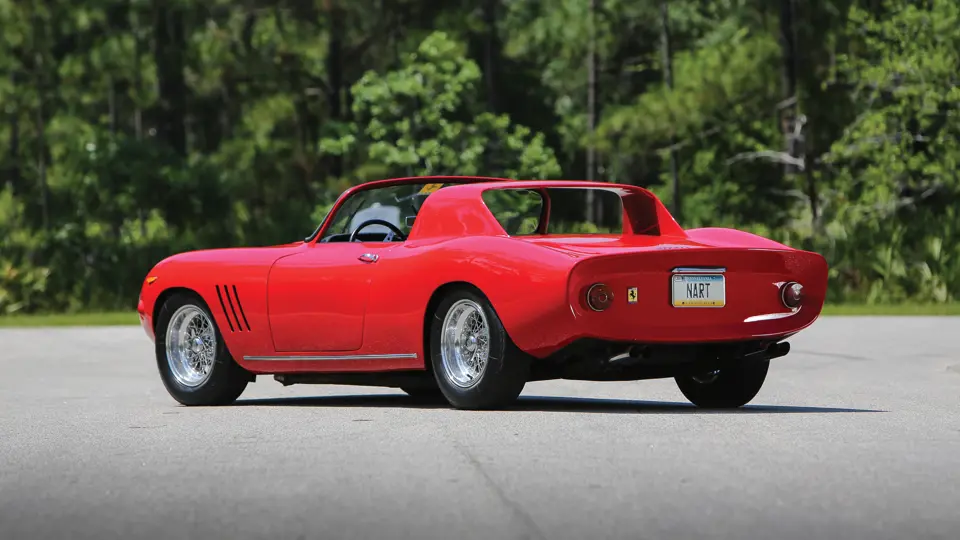

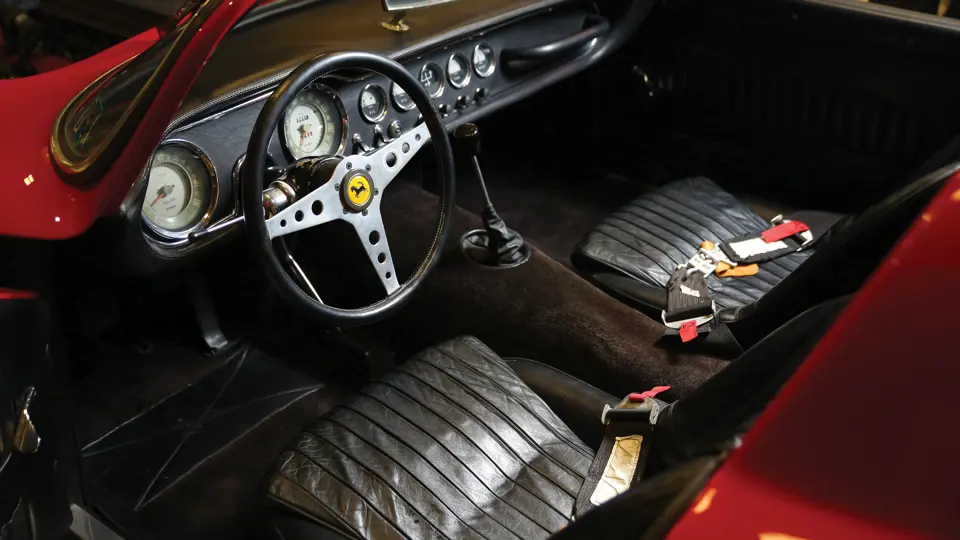

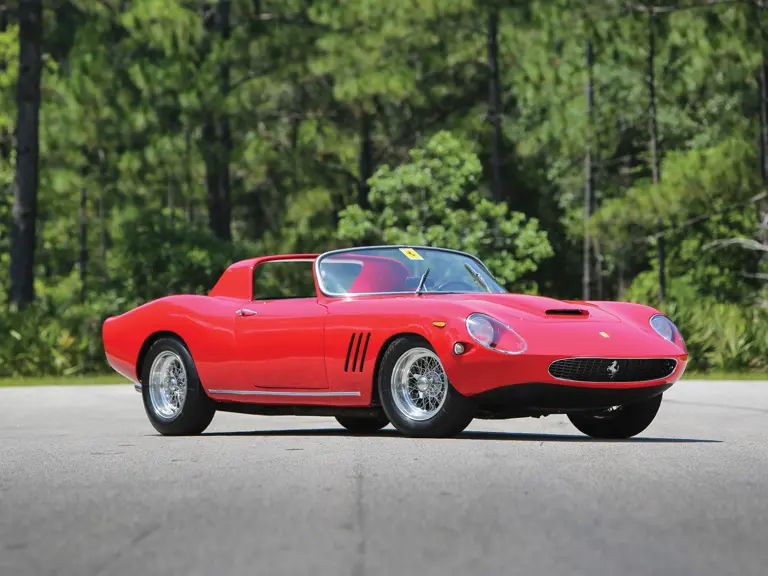
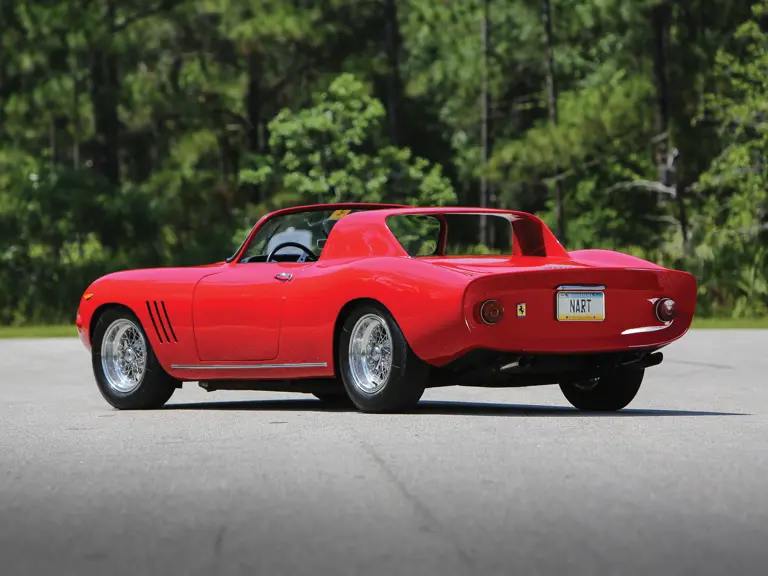
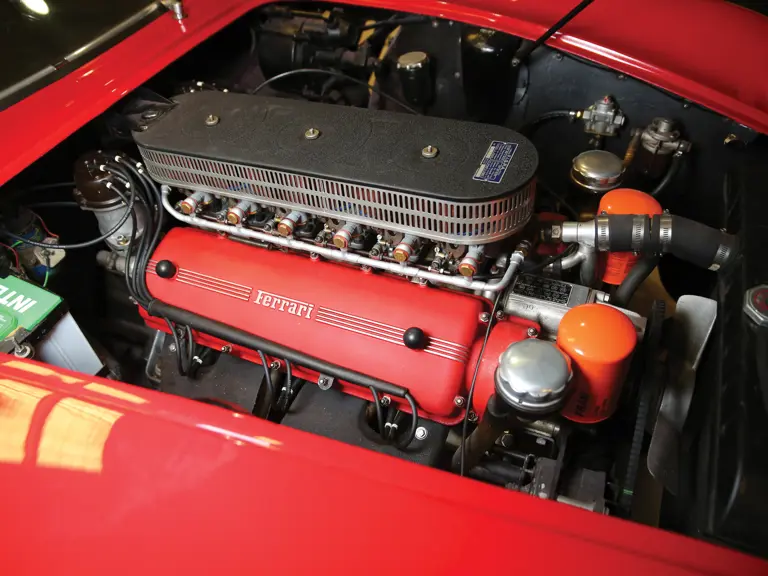
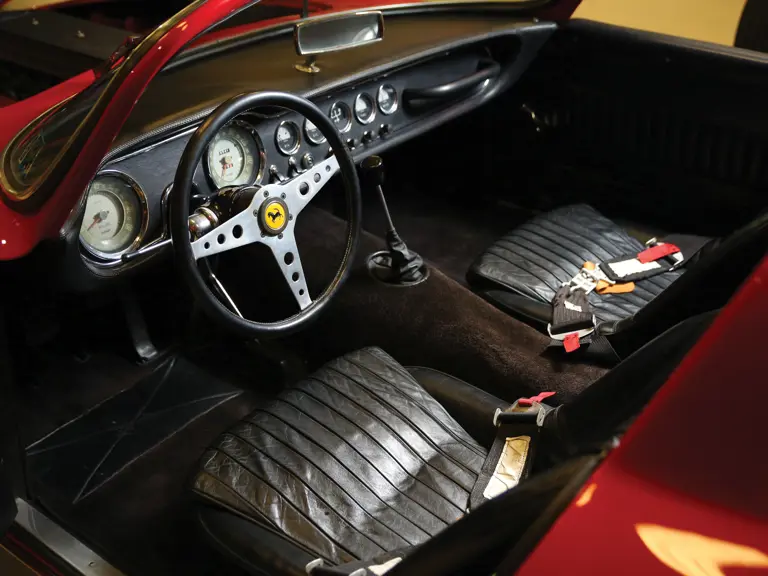
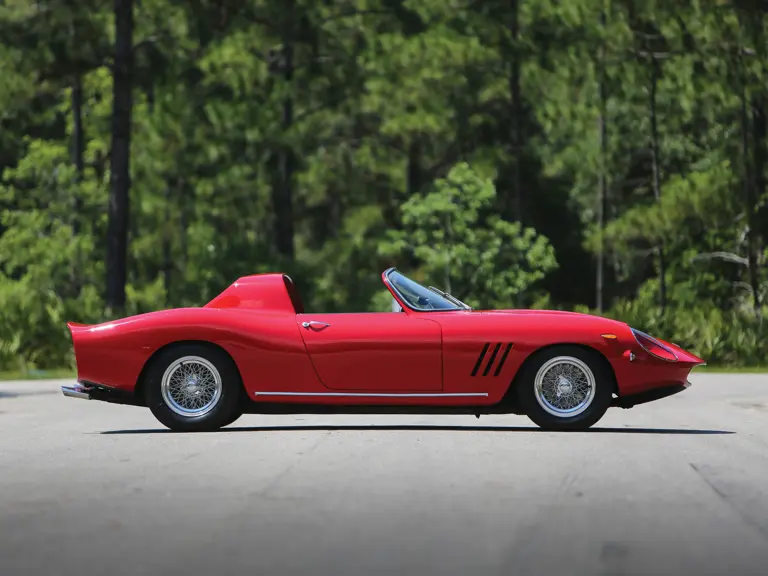
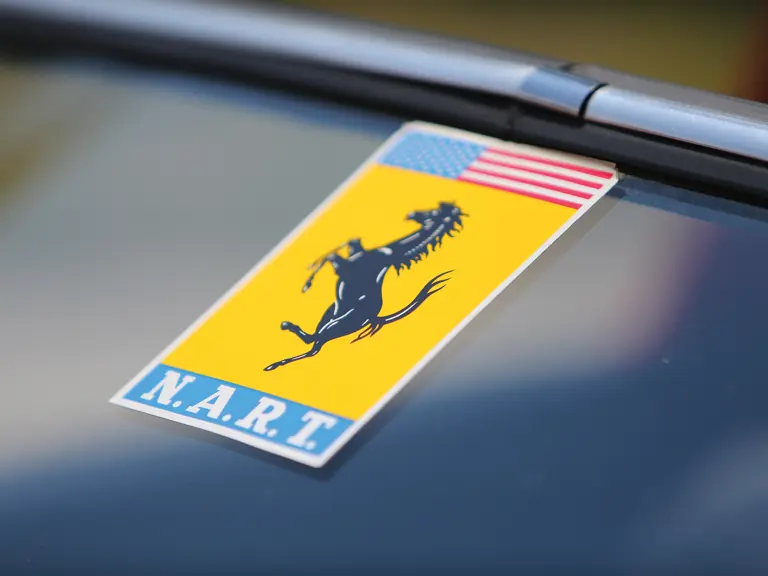
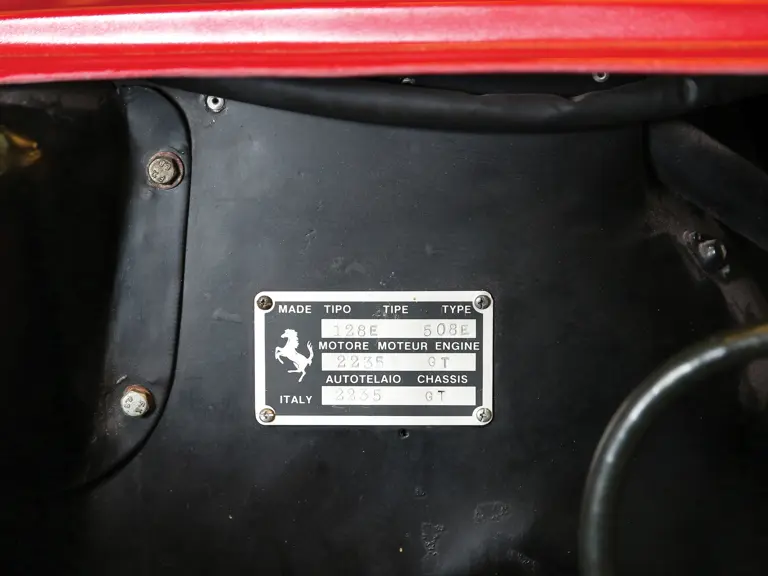
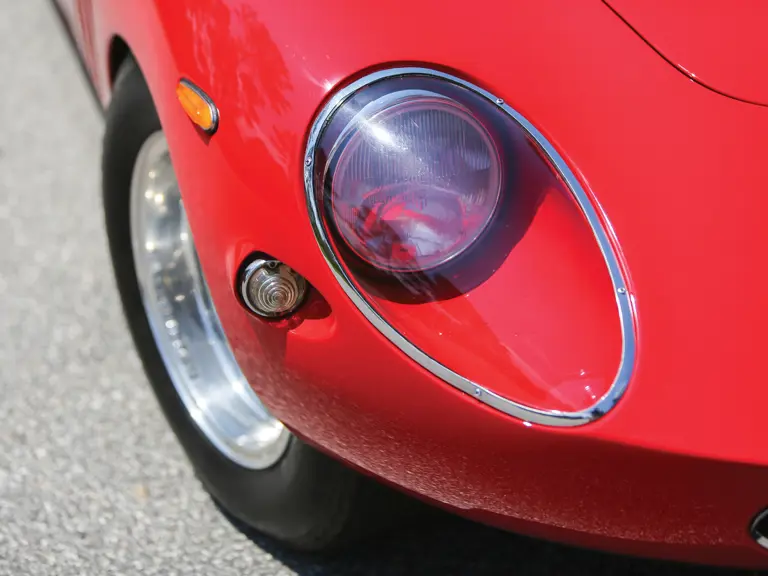
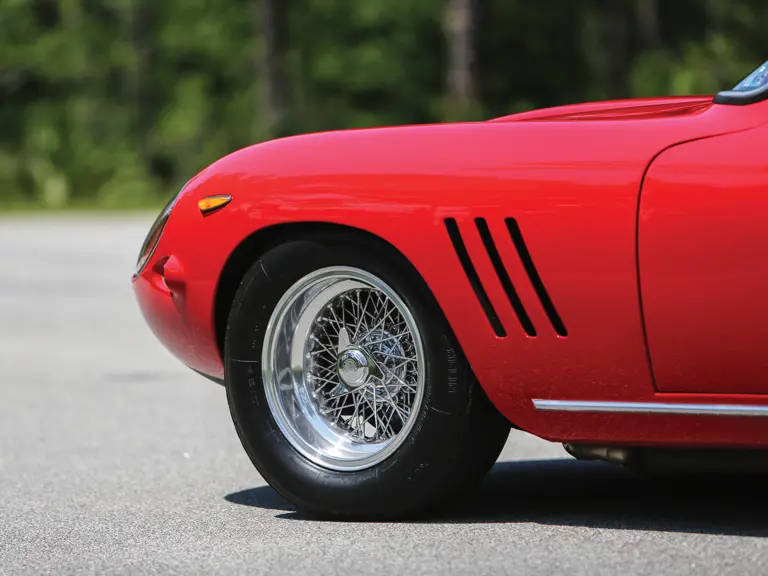
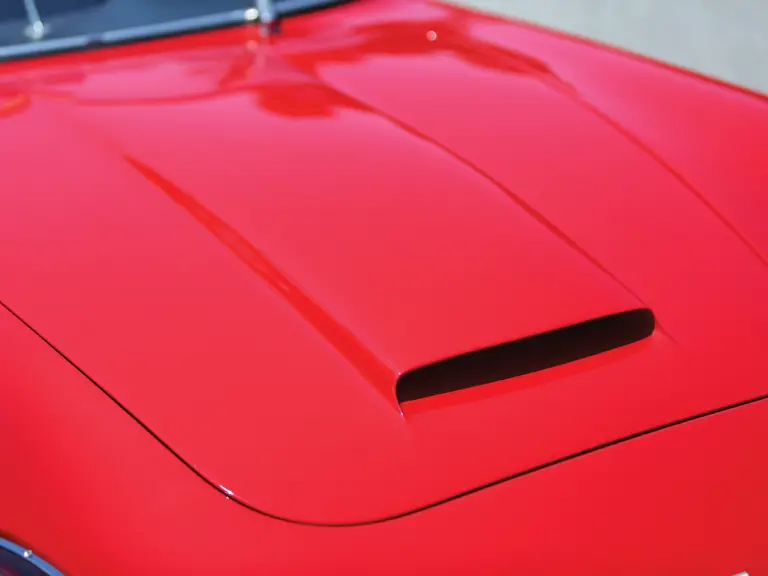
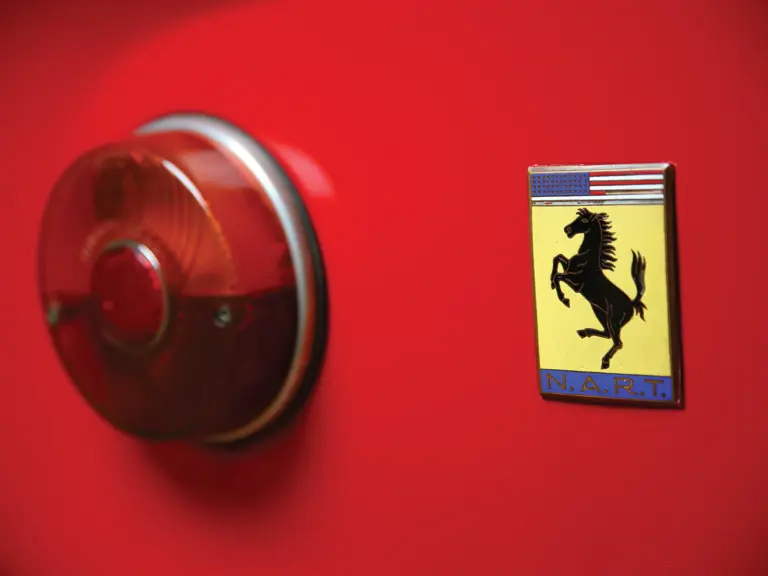
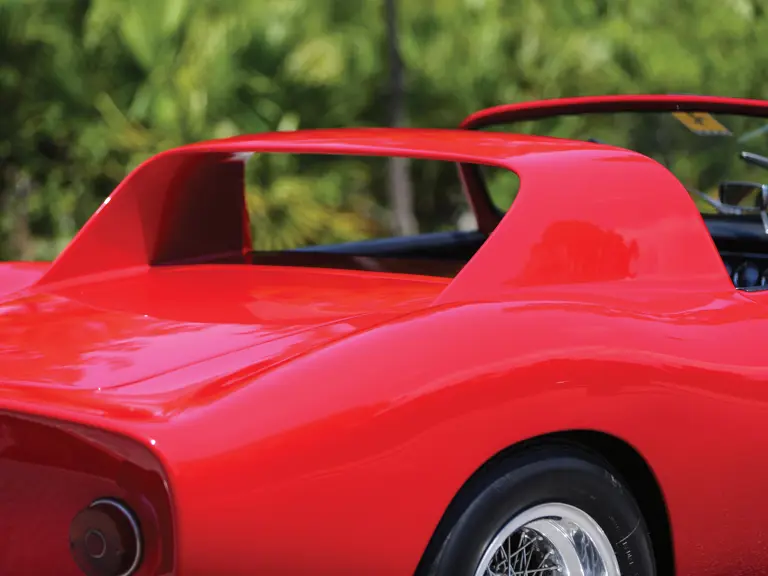
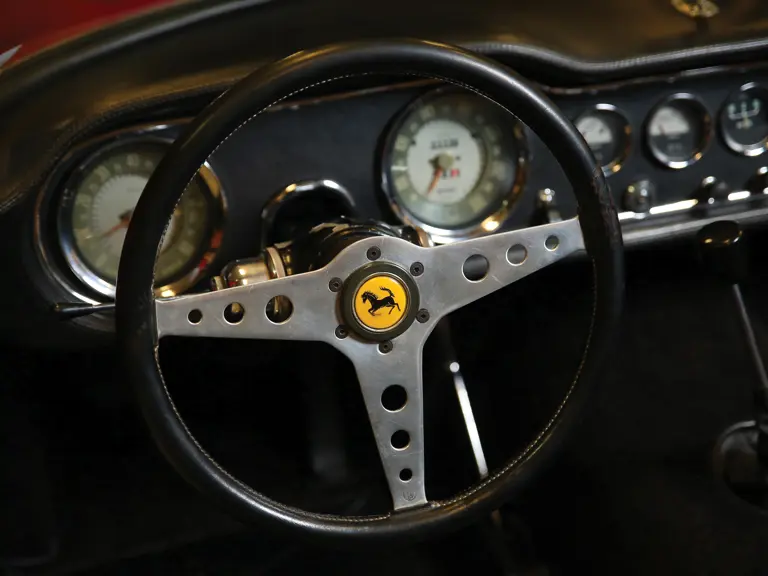
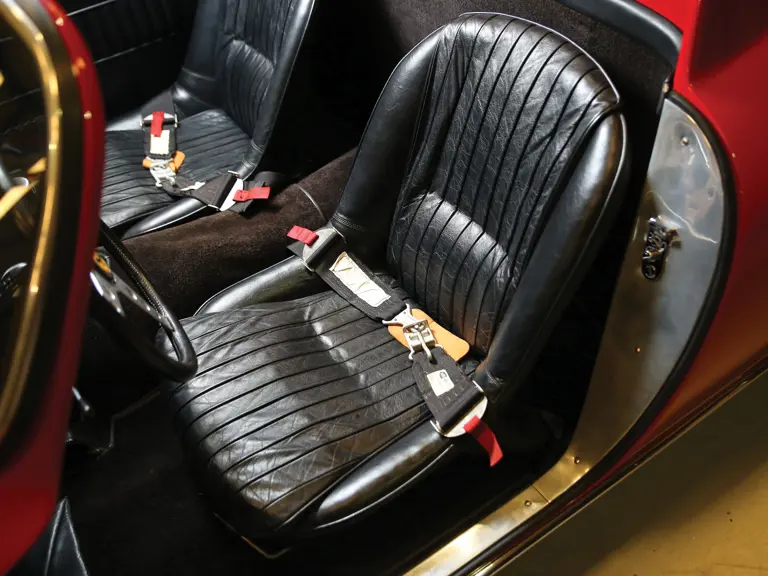
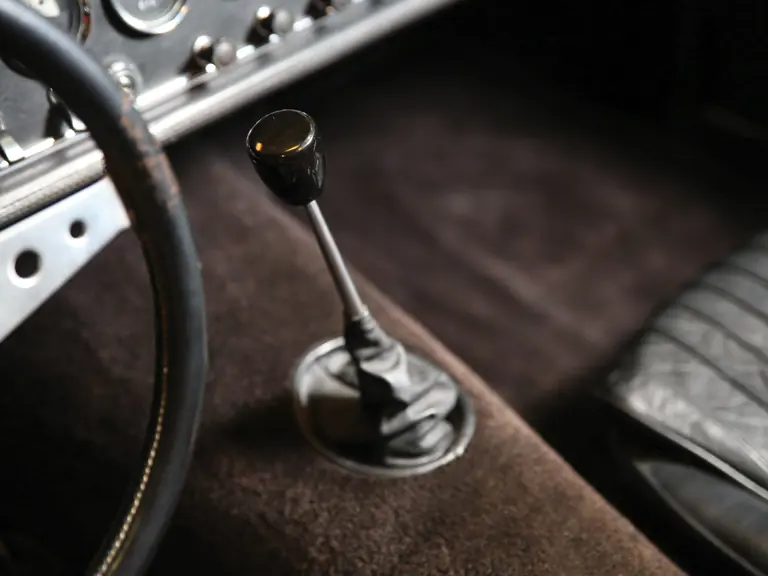
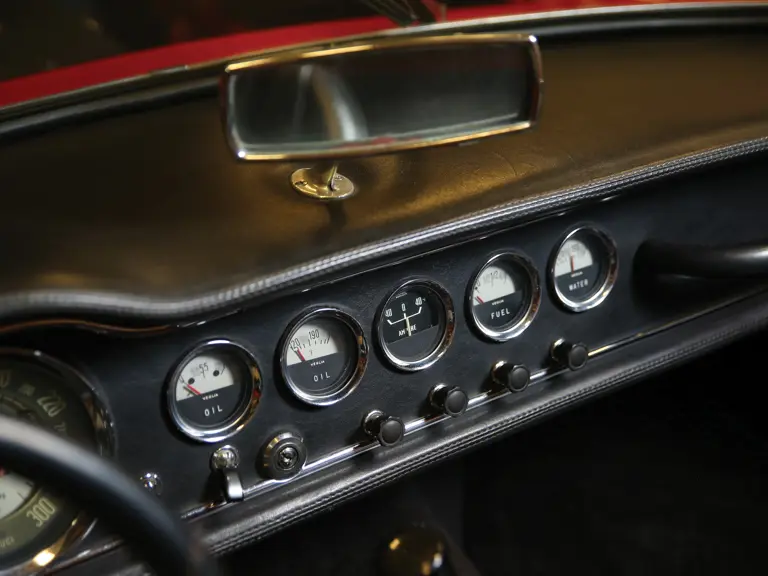
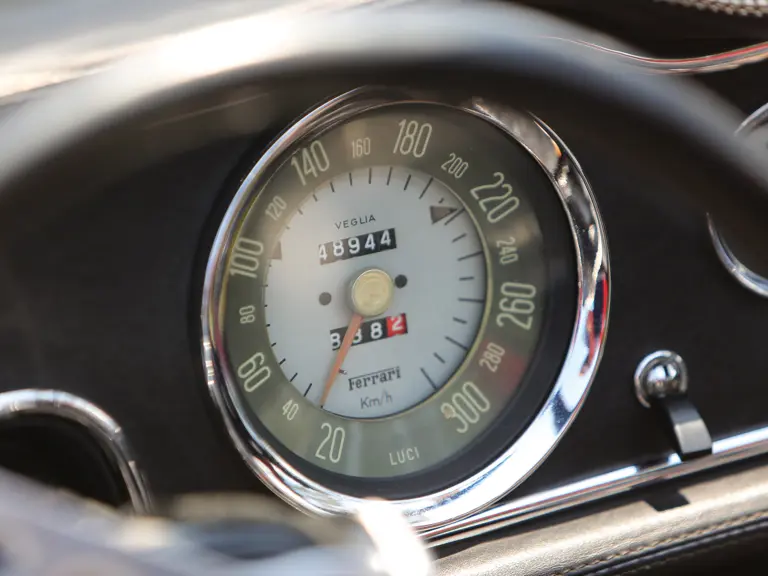
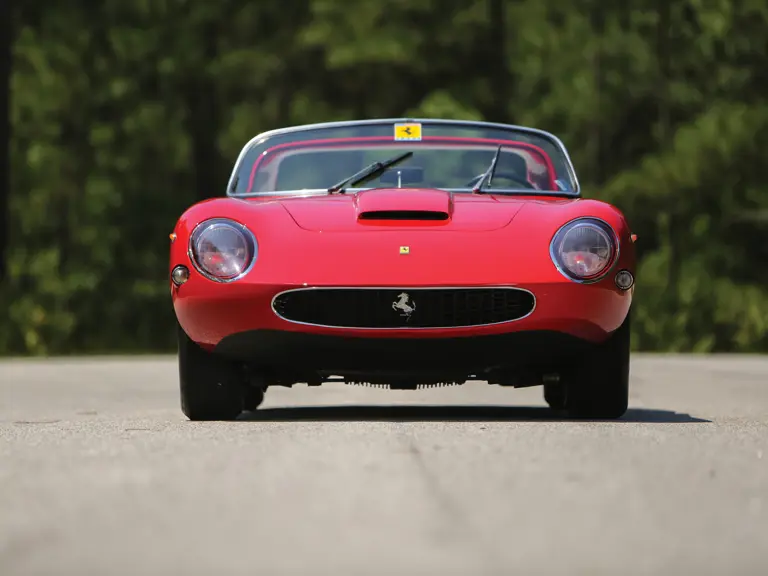
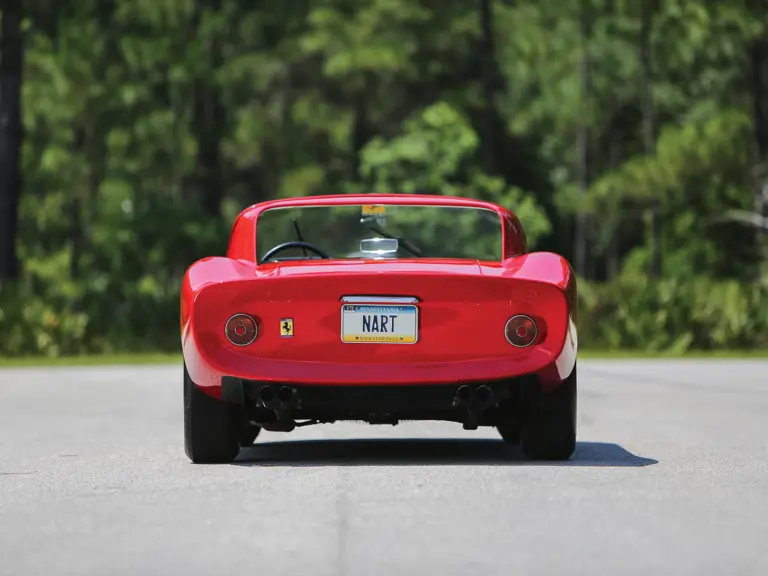
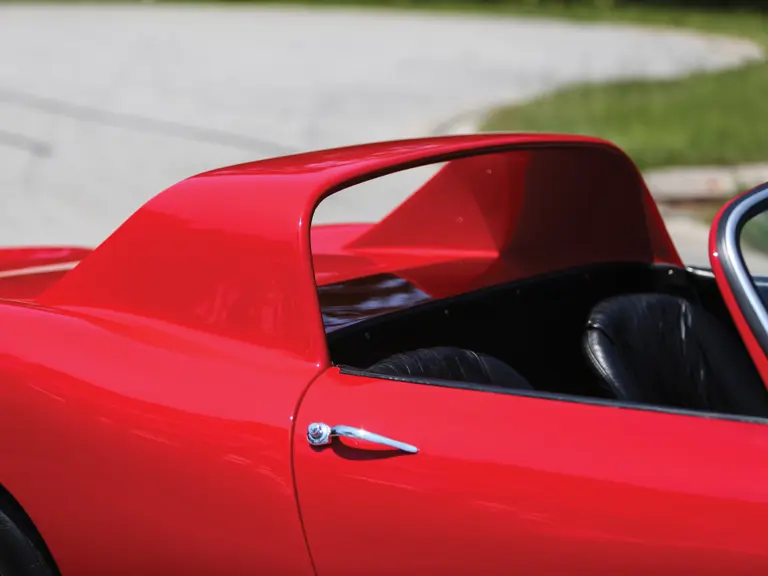
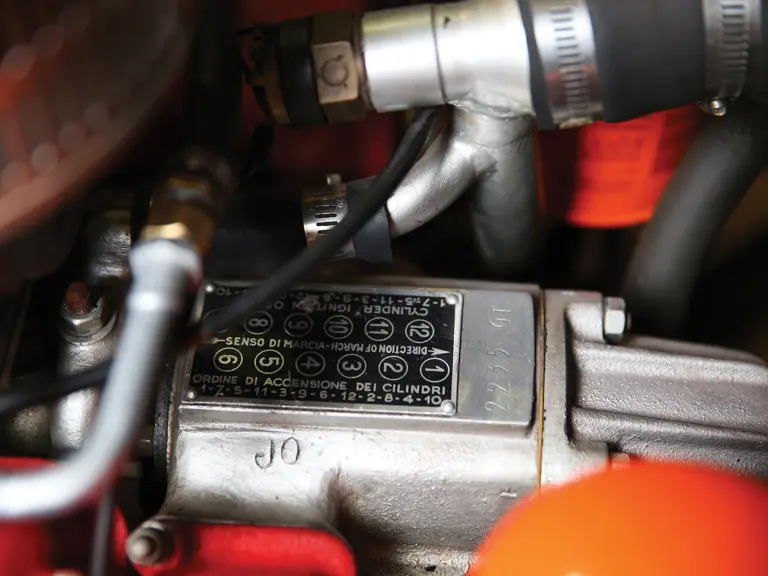
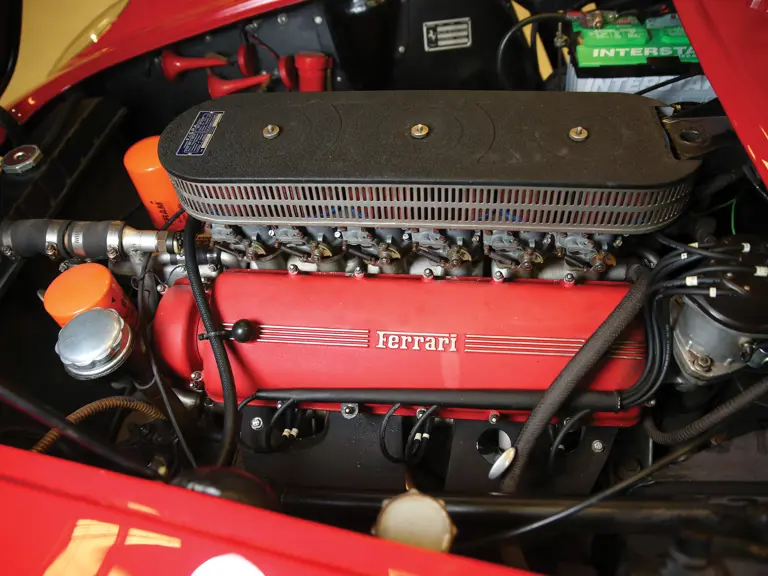
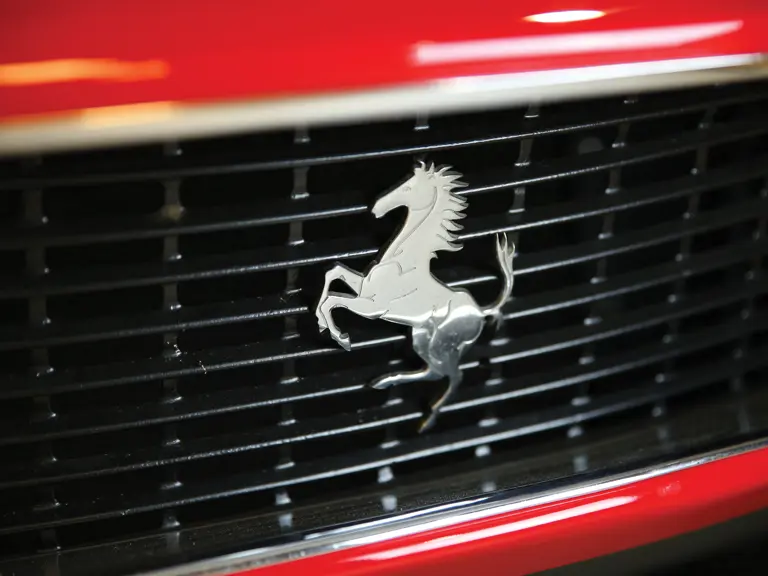
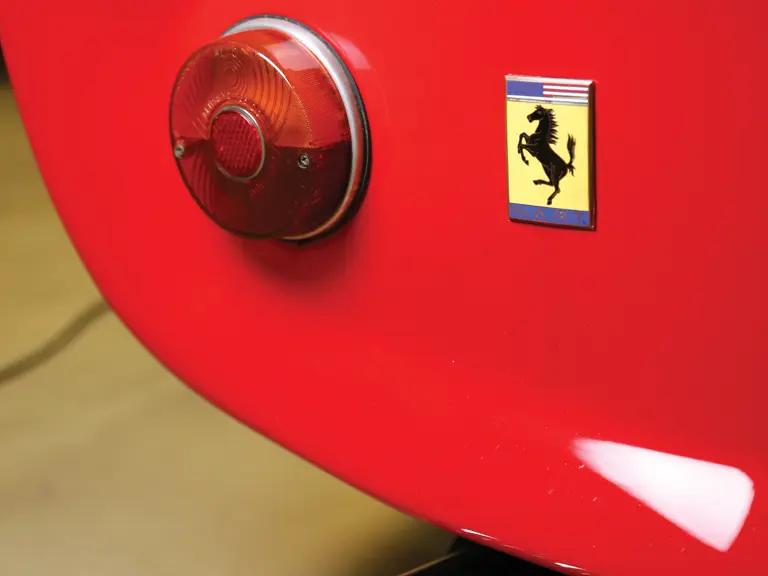
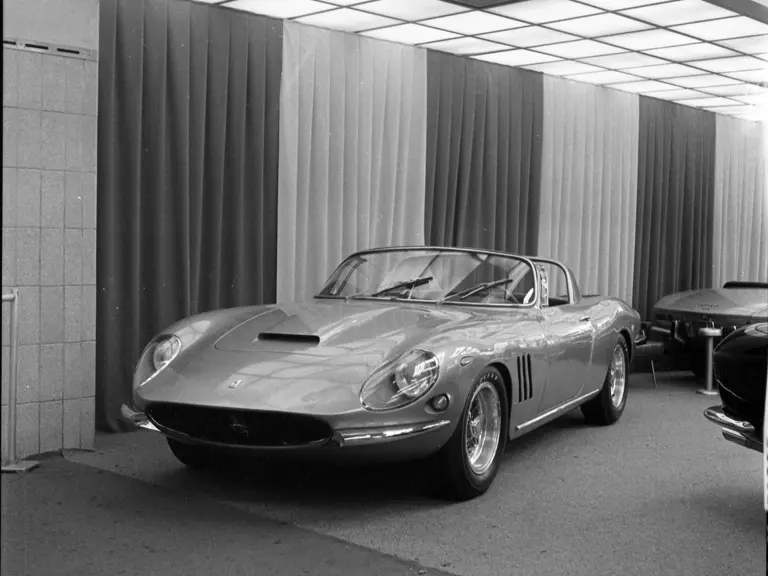
 | Monterey, California
| Monterey, California
